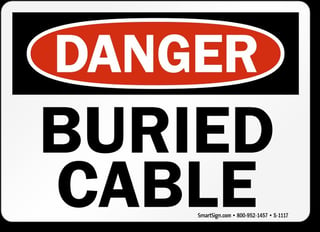Most construction related businesses understand the need for General Liability or Worker’s Compensation insurance and have a basic working knowledge those coverages. However, many business owners may not look closely at some of the exclusions or special nuances of those insurance policies. In several instances, those minor aspects of an insurance policy may mean the difference between having coverage or not when a claim arises.

One good example of this is the General Liability policy and how it relates to Electronic Data Liability. On a standard Commercial General Liability policy, Electronic Data is an exclusion. The language specifically states:
Exclusions - p. Electronic Data
Damages arising out of the loss of, loss of use of, damage to, corruption of, inability to access, or inability to manipulate electronic data. As used in this exclusion, electronic data means information, facts or programs stored as or on, created or used on, or transmitted to or from computer software, including systems and applications software, hard or floppy disks, CDROMS, tapes, drives, cells, data processing devices or any other media which are used with electronically controlled equipment.
Now you may be wondering, what does all of this really mean? Let me give you a claims example to show how the General Liability policy may cover and exclude coverage all at the same time:
An excavation company has been contracted to start digging a foundation in an existing business park. During the project, an excavator digs in the wrong spot and severs multiple data/fiber optic internet cables belonging to the regional internet provider. The resulting damage takes the internet provider 3 days to repair and leaves all of the businesses in that business park without internet access for that same period of time.
A few weeks later, the excavation company receives an invoice for the damages to the buried cable and turns it into their insurance agent. Understanding that a General Liability policy has two main triggers of coverage (Bodily Injury and Property Damage), the claim is paid for the damaged cables based on the fact that the excavator was responsible for the property damage.
A month after the incident happened, the excavator also gets notice from 3 insurance companies who insure businesses located within the business park. The insurance companies are looking to be reimbursed for claims they paid out as a result of lost revenue due to the fact the businesses were without internet access. The owner of the excavation company turns these notices into his insurance agent as well, and is shocked to find out that these 3 claims are being denied by his insurance company. The excavator is now responsible for paying these claims. Because the two triggers of General Liability (Bodily Injury or Property Damage) were not present for those affected businesses, the standard General Liability does not apply. There is no question that the affected businesses suffered economic damage as a result of Electronic Data loss. The reason the excavator’s insurance company declined the claim is because the Commercial General Liability policy had a standard exclusion for Electronic Data losses.
It is important to know that not all insurance companies use the same General Liability form, and that in some cases there may be some coverage for the Electronic Data loss the 3rd party businesses were claiming. This is why it is always important to review your insurance policies.
The best way to close this coverage gap is with an endorsement to the Commercial General Liability policy. This coverage endorsement is the Electronic Data Liability Extension. Typically, this endorsement will list a specific sublimit and deductible amount and will respond to claims for the “loss of use” a 3rd party may encounter as a result of you physically injuring tangible property (the buried data cables). The standard Electronic Data Liability coverage form is the CG0437 12/04.
Adding the Electronic Data Liability coverage to your existing insurance program is a relatively simple process and could save a lot of headaches in a claim situation. This coverage should be considered by all excavators as well as contractors involved in the electrical, plumbing, or carpentry fields. Contact your agent or account manager to discuss this coverage further and explore the possibilities of adding this form to your current insurance program.

COMMENTS